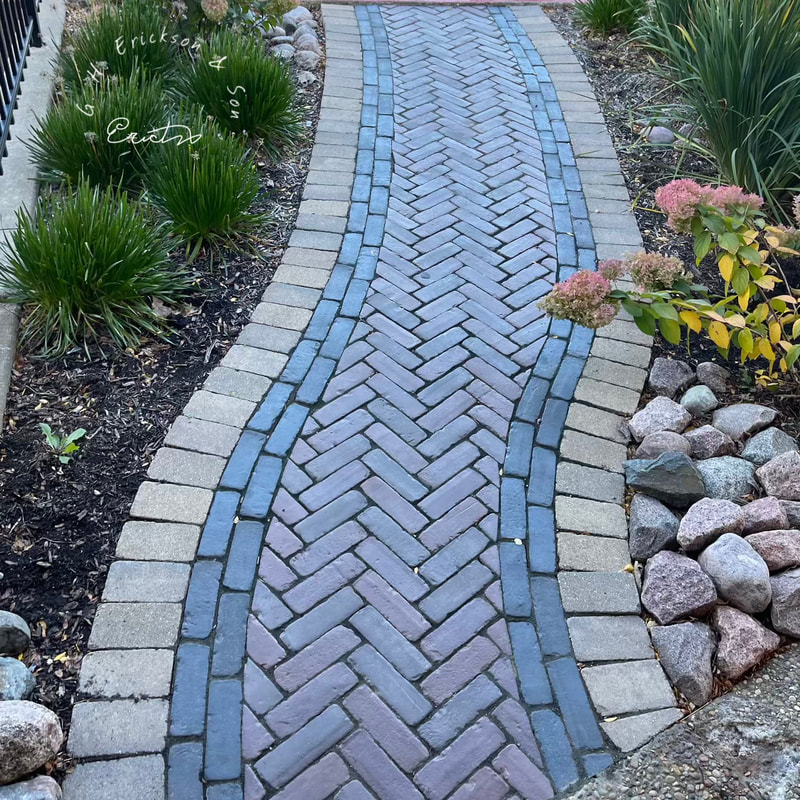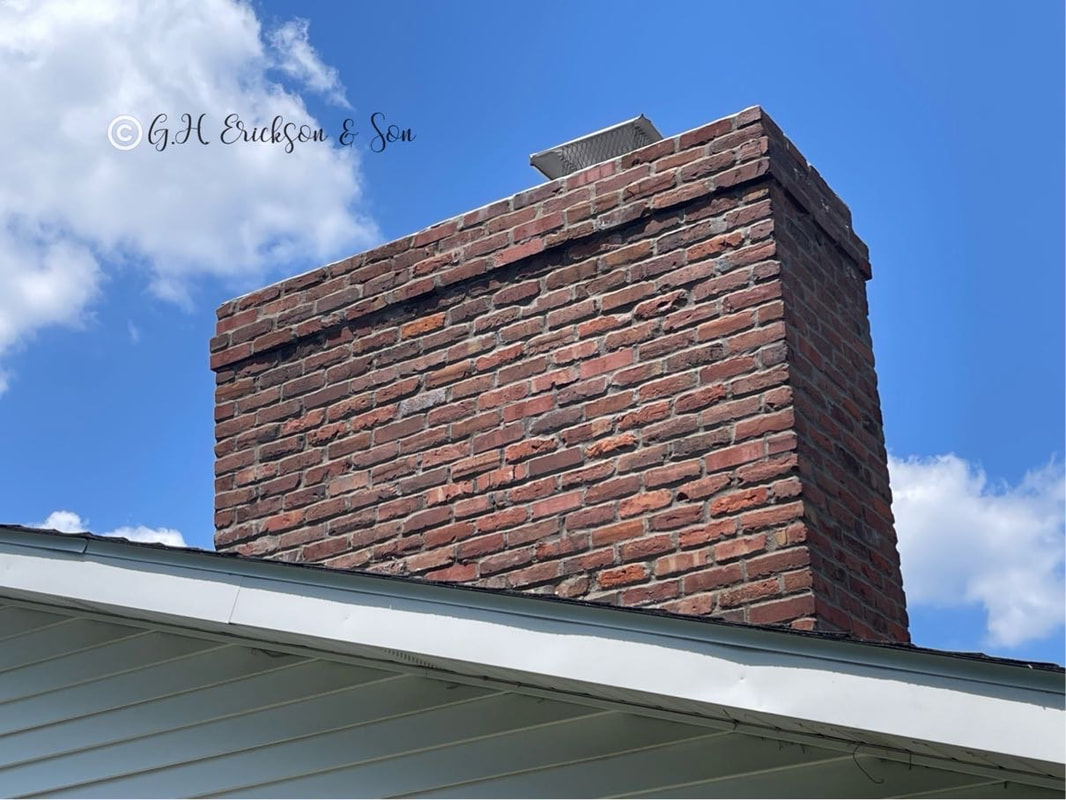Unilock Stone DrivewayWhen it comes to enhancing the beauty and functionality of your outdoor space, Unilock stones are a popular option. With their durability, versatility, and aesthetic appeal, Unilock stones can transform your outdoor space into a stunning oasis. However, to ensure the longevity and stability of your Unilock stone installation, it's crucial to choose the right type of base. While there are various options available, such as crushed stone or gravel, have you considered using a concrete base? In their recent study, G.H. Erickson & Son compared the advantages of using a concrete base for Unilock stone installation to other base types. The results were surprising and may change the way you approach your next outdoor project. Concrete bases not only provide a stable foundation for your stones but also offer long-term durability, resistance to shifting and settling, and improved drainage compared to other base types. Read on to learn more about the benefits of using a concrete base for your Unilock stone installation and how it can enhance the longevity and beauty of your outdoor space. Why a Concrete Base is Important for Unilock Stone Installation?Before we dive into the benefits of using a concrete base for Unilock stone installation, it's essential to understand the importance of a proper base in the first place. The base is the foundation that supports your stone installation, ensuring it stays level, stable, and secure. Without a proper base, your Unilock stones could shift or settle, leading to uneven surfaces, tripping hazards, and even damage to the stones themselves. While various base options are available, such as sand, crushed stone, or gravel, they may not provide the same level of stability and durability as a concrete base. Since concrete is a solid material, it has less give than other base types, ensuring your Unilock stones remain level and secure. Additionally, concrete bases offer superior drainage compared to other options, preventing standing water and reducing the risk of erosion. Comparative Analysis of Using a Concrete Base versus Other OptionsTo understand the benefits of using a concrete base for Unilock stone installation, G.H. Erickson & Son conducted a comparative analysis of various base types. They compared the performance of a concrete base to that of a crushed stone base and a sand base, two of the most popular options for Unilock stone installation. The study found that while crushed stone and sand bases can provide a level surface for your Unilock stones, they are more susceptible to shifting and settling over time. This can lead to uneven surfaces, tripping hazards, and damage to your Unilock stones. Additionally, crushed stone and sand bases may not offer the same level of drainage as a concrete base, leading to standing water and erosion. In contrast, the study found that a concrete base offers superior stability, durability, and drainage compared to other base types. Concrete bases are less susceptible to shifting and settling, ensuring your Unilock stones remain level and secure for years to come. Additionally, since concrete is a solid material, it offers better drainage than crushed stone or sand, preventing standing water and reducing erosion. Concrete Base Installation ProcessIf you're considering a concrete base for your Unilock stone installation, you may be wondering about the installation process. Here's a brief overview of the steps involved: Excavation: The first step in installing a concrete base is to excavate the area where the Unilock stones will be installed. This involves removing any grass, dirt, or other debris to create a level surface. Grading: Once the area is excavated, the next step is to grade the surface to ensure it's level. This involves using a laser level or other tools to ensure the surface is even. Forming: After grading, the next step is to create the forms for the concrete base. This involves using wood or other materials to create a frame that will contain the concrete. Pouring: Once the forms are in place, the next step is to pour the concrete into the forms. This involves mixing the concrete according to the manufacturer's instructions and pouring it into the forms until it reaches the desired thickness. Finishing: After the concrete is poured, the next step is to finish the surface. This involves smoothing the surface with a trowel and adding any desired texture or patterns. Curing: The final step in installing a concrete base is to allow it to cure. This involves letting the concrete dry and harden over time, usually for several days. Benefits of Using a Concrete Base for Unilock Stone InstallationNow that we've covered the installation process, let's dive into the benefits of using a concrete base for Unilock stone installation. Here are some of the key advantages: Superior StabilityOne of the primary benefits of using a concrete base for Unilock stone installation is superior stability. Since concrete is a solid material, it provides a more stable foundation for your stones compared to other base types. This ensures your Unilock stones remain level and secure, reducing the risk of tripping hazards and damage to the stones themselves. Long-Term DurabilityAnother key advantage of using a concrete base is long-term durability. Concrete is a strong and durable material that can withstand heavy foot traffic, weather, and other outdoor elements. This ensures your Unilock stone installation lasts for years to come, reducing the need for costly repairs or replacements. Improved DrainageConcrete bases also offer improved drainage compared to other base types. Since concrete is a solid material, it allows water to drain more effectively, reducing the risk of standing water and erosion. This ensures your Unilock stones remain in good condition and reduces the risk of damage over time. VersatilityFinally, concrete bases offer versatility when it comes to Unilock stone installation. Since concrete can be poured and molded into various shapes and sizes, it can accommodate a wide range of Unilock stone designs and patterns. This allows you to create a customized outdoor space that reflects your unique style and preferences. Common Misconceptions about Concrete BasesDespite the many benefits of using a concrete base for Unilock stone installation, there are some common misconceptions about this base type. Here are a few of the most common: Concrete Bases are ExpensiveOne of the most common misconceptions about concrete bases is that they are expensive. While it's true that concrete can be more expensive than other base types, it's important to consider the long-term benefits of a concrete base. Since concrete offers superior stability, durability, and drainage, it can actually save you money in the long run by reducing the need for costly repairs or replacements. Concrete Bases are Difficult to InstallAnother misconception about concrete bases is that they are difficult to install. While it's true that installing a concrete base requires some skill and expertise, it's not necessarily more difficult than installing other base types. With the help of a professional contractor, you can ensure your concrete base is installed correctly and efficiently. Concrete Bases are UglyFinally, some people believe that concrete bases are ugly and detract from the beauty of their Unilock stone installation. However, this couldn't be further from the truth. With the right finishing techniques, a concrete base can complement and enhance the aesthetic appeal of your Unilock stones, creating a cohesive and beautiful outdoor space. Frequently Asked Questions about Concrete Bases for Unilock Stone InstallationHere are some frequently asked questions about using a concrete base for Unilock stone installation: 1. How Thick Should a Concrete Base be for Unilock Stones? The thickness of a concrete base for Unilock stones depends on various factors, such as the weight of the stones and the intended use of the outdoor space. Generally, a thickness of 4-6 inches is recommended for most Unilock stone installations. 2. Can I Install a Concrete Base Myself? While it's possible to install a concrete base yourself, it's recommended to hire a professional contractor. Installing a concrete base requires some skill and expertise, and a professional can ensure the base is installed correctly and efficiently. 3.How Long Does a Concrete Base Last? A properly installed and maintained concrete base can last for decades. Since concrete is a durable and long-lasting material, it provides a solid foundation for your Unilock stone installation that can withstand heavy foot traffic, weather, and other outdoor elements. Testimonials from G.H. Erickson & Son's ClientsHere are a few testimonials from clients who have used G.H. Erickson & Son for their Unilock stone installation with a concrete base: "I was hesitant to invest in a concrete base for my Unilock stone installation, but I'm so glad I did. The stability and durability of the concrete base have made all the difference in ensuring my outdoor space remains level and secure." "Working with G.H. Erickson & Son was a breeze. They were professional, knowledgeable, and efficient in installing my concrete base for my Unilock stone installation. I would highly recommend their services to anyone looking for a high-quality outdoor space." "I've received so many compliments on my Unilock stone installation with a concrete base. The finished product looks beautiful and has held up perfectly over time. I couldn't be happier with my investment." Conclusion: The Importance of Investing in a Concrete Base for Unilock Stone InstallationOverall, if you're considering Unilock stone installation for your outdoor space, investing in a concrete base is a smart choice. With its superior stability, durability, and drainage, a concrete base provides a solid foundation for your stones that ensures they remain level and secure for years to come. While other base types may be cheaper or easier to install, they may not offer the same long-term benefits as a concrete base. By choosing a concrete base for your Unilock stone installation, you can enhance the beauty and functionality of your outdoor space and create a customized oasis that reflects your unique style and preferences.
0 Comments
Leave a Reply. |
We Would Love to hear from you!
|
Service area:
|
Telephone(309) 678-6097
© 2005 - 2023 G.H. Erickson & Son. All Rights Reserved Address 1700 W Marigold Dr Peoria, IL 61615 Designed by: jaytweb.com |


